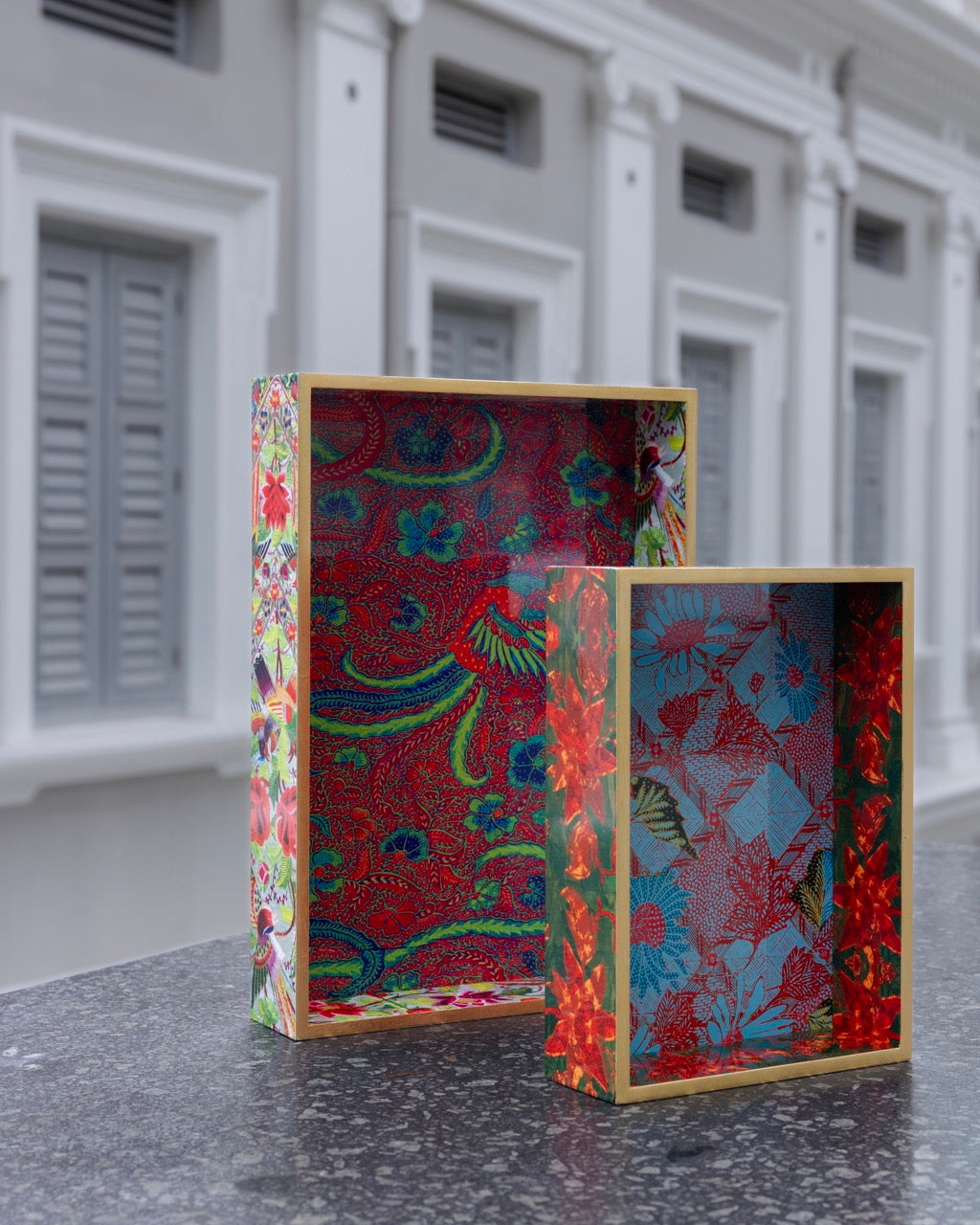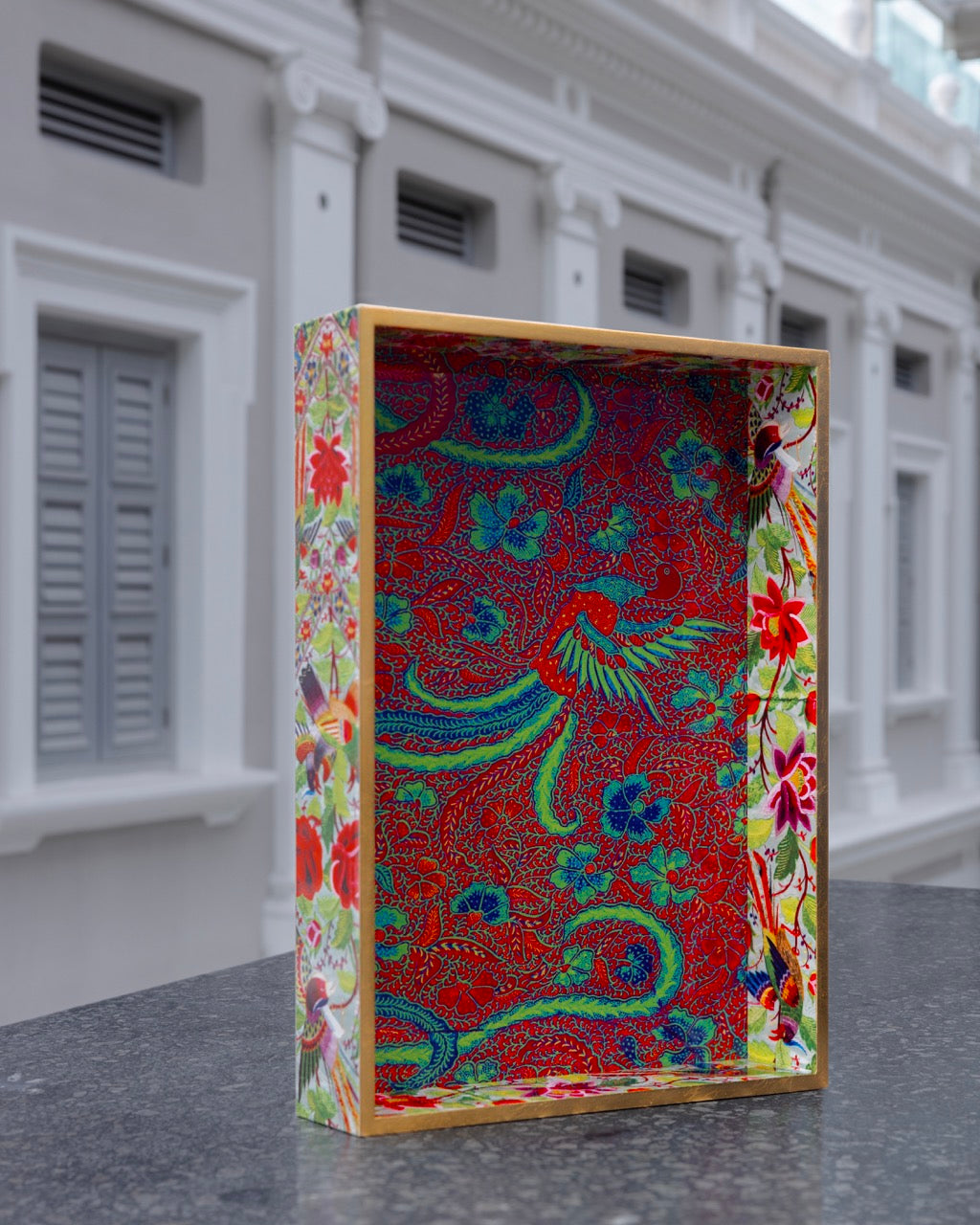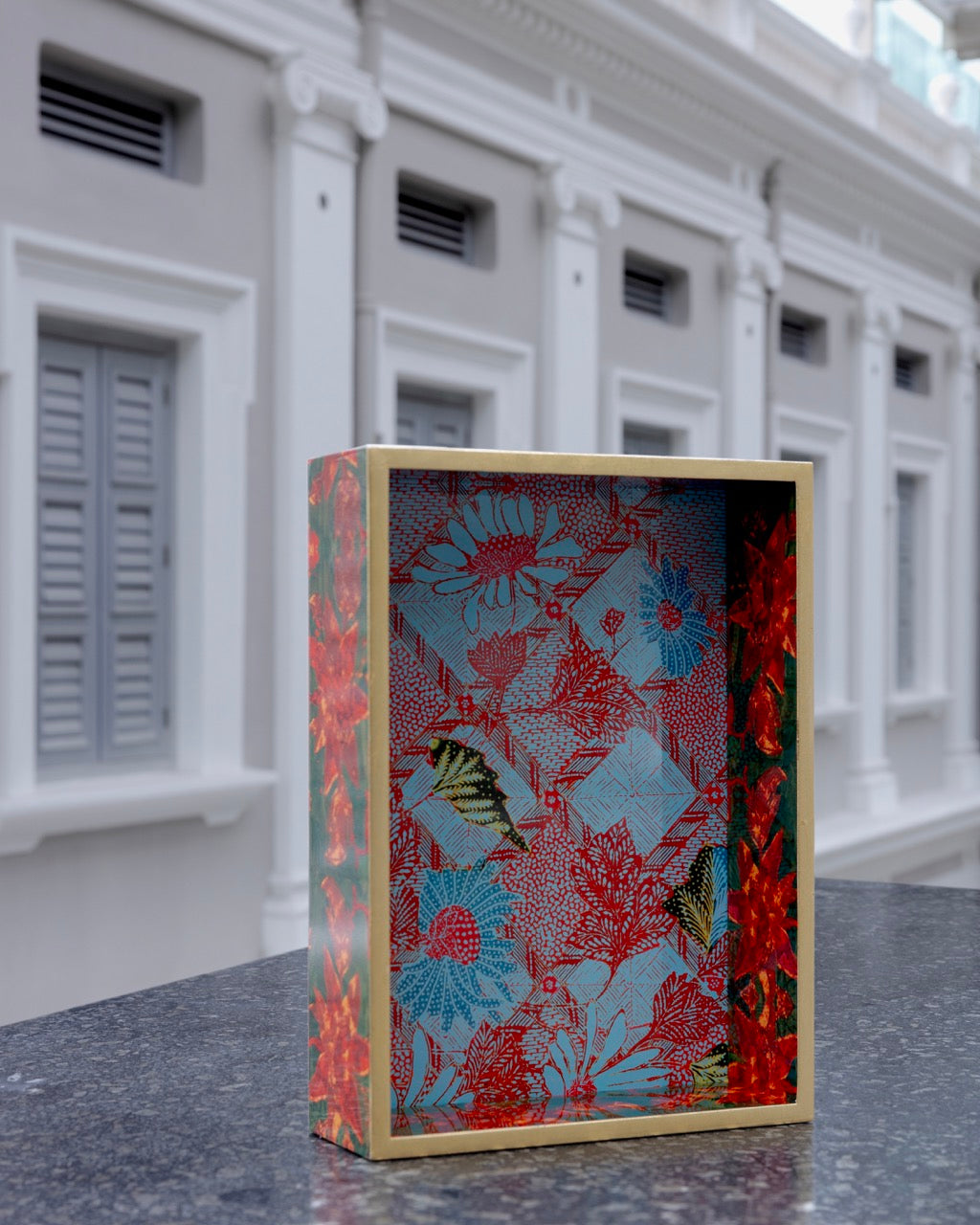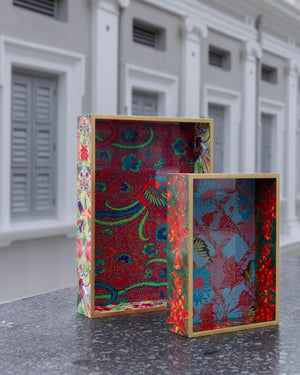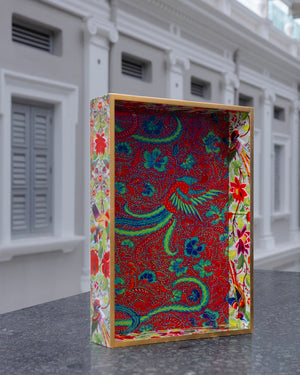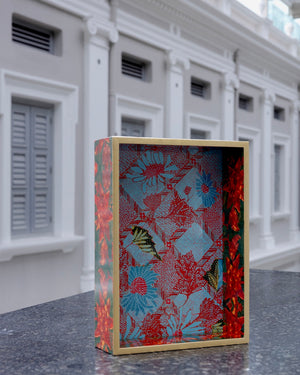NATIONAL COLLECTION X MUSEUM MARTKET LACQUER RECTANGLE TRAYS
$150.00 SGD
Sarong
Java, 1930s-60s
Textile
Collection of Asian Civilisations Museum
2007-00208
Gift of Anne Soh Gwek Shin
This sarong would have been worn by a nyonya (Peranakan woman) under a kebaya. It features a large floral bouquet in the dark green central panel and a lattice design on the rest of the body. The design structure of a wide central panel framed by narrower borders is distinct from batik sarongs worn by the Chinese and European communities in Singapore. Nyonya-style sarongs are known for their bright and colourful designs, made possible by chemical dyes imported from Europe in the 19th century.
Long Robe
Malacca, early-mid 20th century
Silk, metal thread
Collection of Peranakan Museum
2011-01803
This turquoise damask silk robe is richly embroidered with auspicious symbols in silk and gold thread couching on the bottom half. It features the crane at the sides which symbolises both status and longevity. This robe would have been worn by the groom.
Bed Hangings
China, early 20th century
Hangings
Collection of Asian Civilisations Museum
2002-00724
Gift of Mr. Edmond Chin
This pair of bed hangings is ornately designed with floral and phoenix motifs in embroidery and beadwork. It was part of the ensemble of auspicious symbols, especially fertility, which decorated the Peranakan wedding bed. It reflects the hope for many heirs. Wedding beds were one of the largest pieces of furniture in wealthy Peranakan homes, and together with the hangings could be part of the wedding trousseau.
Malay Batik Sarong
Singapore, mid-late 20th century
Textile
Collection of the National Museum of Singapore
2000-07881
A Malay batik sarong with intricate phoenix and floral motifs. Used by both men and women, a sarong is a length of cloth with a myriad practical uses, one of which is for wrapping around the waist as a garment.


